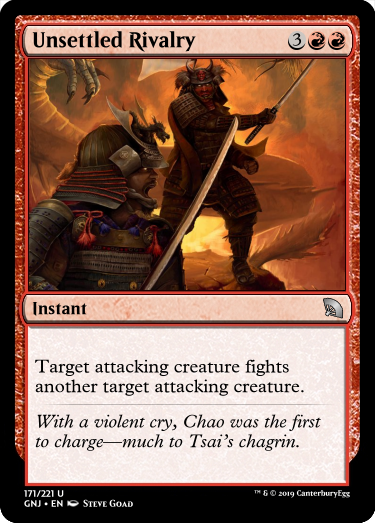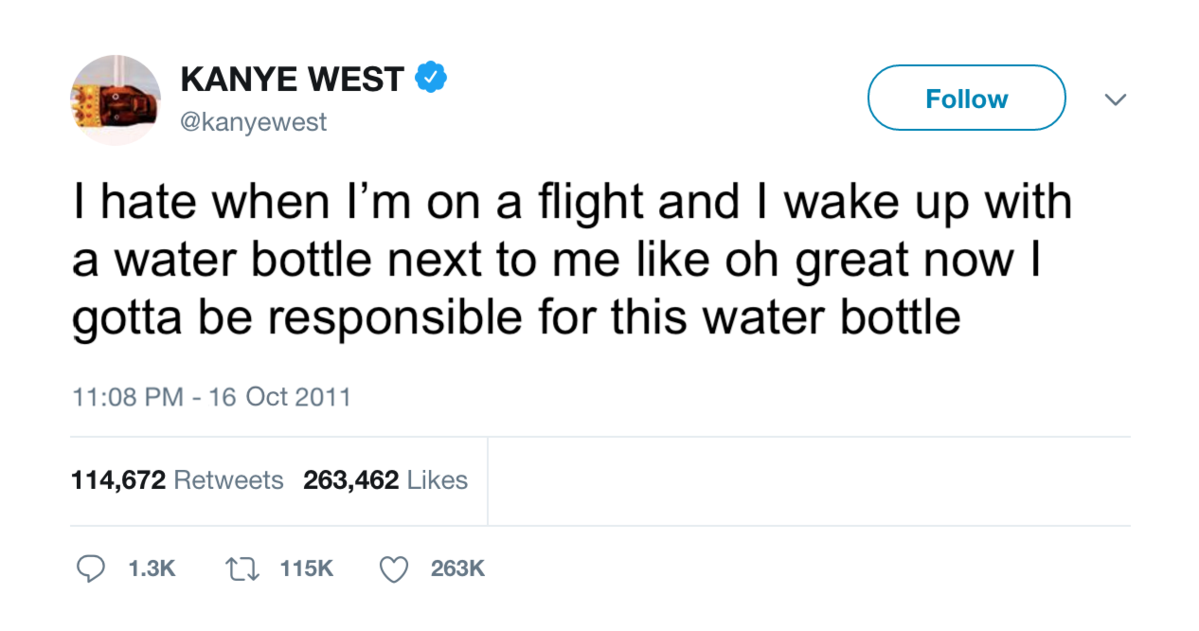Log: 4/23/2021
This week: Had a busy week so a little light…but: junk, ice cream machines, colonialism in the core, emotional intelligence, smallholder yields, and custom Magic: The Gathering sets.
Unwanted Corkpull, Kelly Pendergrast.
A good run through of many of my own anxieties wrt to physical products.
My parents mentioned that they’ll need help to start cleaning out the house; on the one hand I’m excited about the nostalgia of going through old books and whatnot I had as a kid but dreading the inevitable pile of unwanted things that needs expedient disposal and forgetting. There’s no comforting illusion of recycling or donation, considering that nine times out of ten recycling is effectively landfilling and the fraction of junk that was at one point functional (i.e. not packaging, or memorabilia, and so on) will be in disrepair or obsolete.
The author mentions Robin Nagle, I recommend her book Picking Up. Sanitation is one of the most dangerous jobs, in large part due to the horrendous shit that makes up what we make. Bits that become projectiles in the hopper and toxic sludge spewing out of bags that can kill. And of course the sheer amount of waste that circulates. As pointed out in the article, disposability– along with debt and privatization–is an important strategy for maintaining demand, creating a unending vacuum that pulls products throughout the economy.
Like the author I sometimes fantasize about tools that are well-made, long-lasting, repairable, and excel in their function. There’s a subreddit for those products, r/BuyItForLife, although I think there’s often conflict over whether or not the sub has lost sight of its original purpose, with people posting things that, in fact, do not last for particularly long (the gold standard seems to be things that are passed down through generations and still in good condition), and there’s also the side that the sub drives purchases/is probably a target for advertisers, though mitigating consumption isn’t one of its stated goals. And funnily, there are often posts of people complaining that they can’t buy anything that’s posted on the subreddit, because a lot of these durable products aren’t produced anymore.
I hold the corkpull, and I think of the prehistory of its materials extracted from the ground, the chemical manufacturing to form the plastic compounds, the digital piecework of design logistics, marketing, the molding and unfolding and packaging and shipping and handling and retail. It’s such a weight to hold in my hand. The hours aren’t love hours, necessarily — rather chemical hours and deep-time sedimentary hours, pain hours and R&D hours. More hours than I can ever repay.
I think of the other extreme here, of preppers and survivalists and homesteaders and so on who in some sense are desperately trying to escape this bond to global supply chains and waste. I get the draw, but I don’t know if you can ever fully escape that pull.
‘Colonialism had never really ended’: my life in the shadow of Cecil Rhodes, Simukai Chigudu
This was fantastic. I don’t have much to add except that I recommend and that it’s another angle on the very complicated, challenging, and inescapable tension of needing to play by the rules of oppressive systems to “succeed” enough that you gain some footing to shift them, and the inevitability that playing by those rules leaves its mark on you–marks that you spend years reckoning with and undoing.
Reading throughout I was reminded of my own family history and the relatively little I know from when I’ve worked up the courage to ask my parents about it. I grew up in the US so there is a generational gulf between me and my family history in China, but not as much as I’d have originally thought. My grandparents consisted of two doctors, a scientist, and a social work, and all had some connection to the US: one had studied in the US, the others were among the first Chinese doctors to work at a western hospital funded by a Rockefeller. My father, who continue this short tradition of western medicine in my family, interestingly grew way more interested in traditional Chinese medicine over the last decade.
Chigudu’s necessarily nuanced relationship Mugabe and Zimbabwe independence and the warped binary positions people distant from the country take also reminded me of the internet and media discourse around China. Now is obviously a sensitive time with anti-Asian sentiment rising and continued tensions between the US and China, but it’s still extremely common to see positions that are (and I don’t think this is really an exaggeration) “China bad” or “China good”. People who live in America no doubt have complex feelings about the country because it encompasses so many different things. China is just as complex, but countries outside your own, that you have no connection to, are only ever invoked as a symbol and never as a place.
As someone active in online leftist spaces I come across pro-Mao/pro-China rhetoric very often and am never really sure how to deal with it. My family and their friends were persecuted under Mao as intellectuals; being associated with a western hospital didn’t help. It’s really hard for me to see how that could have been justified. This is winding away from the original piece so I’ll stop here, but maybe I’ll write more on this at another time.
They Hacked McDonald’s Ice Cream Machines—and Started a Cold War, Andy Greenberg
Interesting story about the McDonald’s ice cream machines that are constantly out-of-service and how a couple, after building a device that made independent maintenance of the machines easier for franchises, came under the fire of McDonald’s itself. I recently gave a talk titled “Autonomy vs Automation” themed around asking whether or not a technology enhances autonomy or encourages automation, by which I mean “makes decisions on our behalf”, whether or not we realize it. Many new technologies impose some kind of asymmetric relation on its users, whether that is a draconian EULA or a excessive ToS or the cyclic dependency of GMO/fertilizer/pesticide the agrochemical industry entails. The piece described how Taylor, the company behind the notorious ice cream machines, makes independent maintenance of the machines difficult in part because they benefit from lucrative maintenance contracts. You can probably guess where the story goes: McDonald’s/Taylor crackdown and Taylor, seeing the interest in the couple’s device, make their own copy of it. I can’t say I have any emotional investment in any of the parties involved but it was an entertaining read.
It reminds me of the “f’real” shake machines at Wawa–not quite the same as froyo but iirc the approach there is to have the ice cream in a separate container and refrigeration unit, and the machine just does the mixing. Seems way less complicated but I don’t know if the same approach would work for froyo.
The Repressive Politics of Emotional Intelligence, Merve Emre
Another entertaining read, where about 3/4 of the way through I realized that “emotional intelligence” as a self-disciplining framework for life under capitalism sounds an awful lot like Confucianism, at least The Analects, which I have to admit is the only Confucian text I’ve read. The harshest reading of The Analects is that Confucius is basically doing what the author here is criticizing Goleman for–a kind of conservatism with regards to maintaining harmonious but rather regressive relationships and an implication of personal failure if strife occurs in them. Whereas Goleman developed another naturalizing sleight of hand for individualizing the burden of capitalism and disciplining its subjects, Confucius I guess was doing similarly for the state? I don’t want to stretch this comparison too far, it was just a briefly striking similarity.
Higher yields and more biodiversity on smaller farms, Vincent Ricciardi, Zia Mehrabi, Hannah Wittman, Dana James & Navin Ramankutty
A promising meta-analysis that finds greater yields and (crop and non-crop) biodiversity with smaller farms. This is a very controversial topic (consider this recent big ag shill piece) and when I read more about it while researching fertilizer I couldn’t find anything conclusive. There is just so much variety to contend with–different crops, environments/climactic conditions, unusual weather patterns, variability in crop treatment, soil quality, local socioeconomic conditions, and so on–that it’s hard to generalize the outcome of any study (or even set of studies!). But at least this study is more evidence on the side of smallholders. Interestingly, they weren’t able to find anything conclusive on GHG emissions and resource efficiency, which, along with crop yields, are the major points of contention in the big-vs-small ag debate. The article hints at labor being a main factor here, which I guess is not all that surprising.
PlaneSculptors

This is an incredible site of custom Magic: The Gathering sets. The quality and creativity of the set and card designs are impressive–I hope to try one of them out at some point. I’m pretty sure some official cards and sets have lifted ideas from this site…which is something I’ve wondered about. There have been accusations of Wizards of the Coast stealing ideas from fan designs.


